Massari Swimming Pool Project
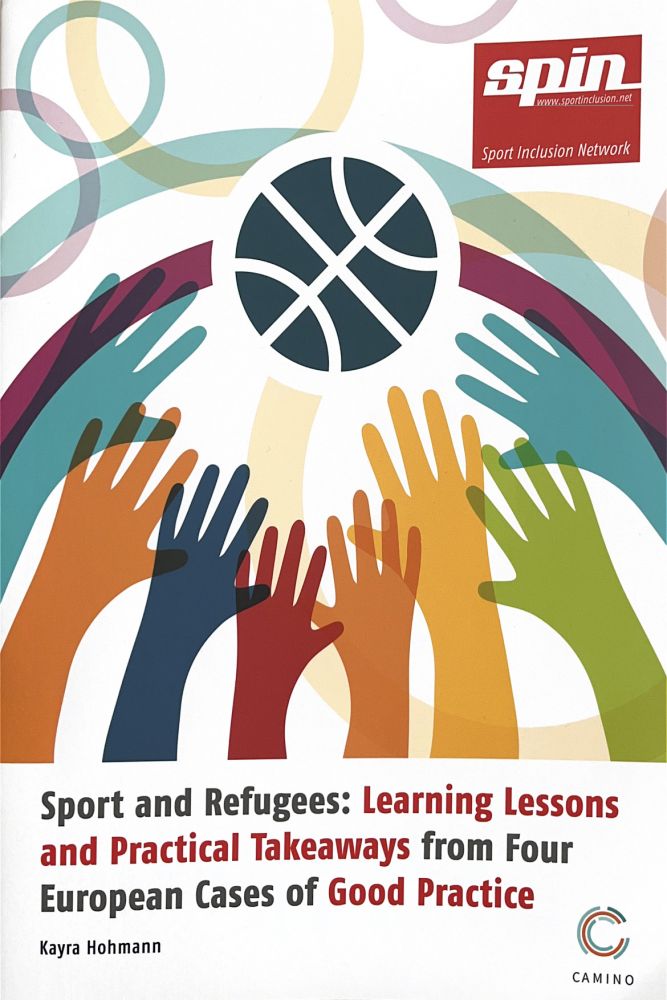
Descrizione del Progetto e Lezioni Apprese
1: Progetto Piscina Massari
Organizzazione: UISP Torino ("Unione Italiana Sport per Tutti")
Il Progetto Piscina Massari è stato creato da UISP Torino e offre corsi di nuoto settimanali e attività sportive in acqua in una piscina riservata esclusivamente a donne di tutte le età e provenienze.
L'offerta è esclusivamente per donne - oltre alle partecipanti, anche le istruttrici sportive e il personale della piscina sono tutte donne. UISP è un'associazione sportiva nazionale italiana che promuove l'accesso allo sport per tutti i residenti italiani. L'Iniziativa Piscina è stata lanciata nel 2011 su suggerimento di una donna marocchina interessata a svolgere attività sportiva in un ambiente riservato alle sole donne.
Inizialmente, il progetto intendeva rispondere alle esigenze delle migranti e rifugiate musulmane offrendo corsi di nuoto in una struttura sportiva schermata dall'esterno, dove le partecipanti potevano esercitarsi in un ambiente più sicuro lontano dagli occhi del pubblico. Tuttavia, poco dopo il lancio del programma, molte donne italiane sono state attratte dall'idea di nuotare in un ambiente femminile.
Da oltre undici anni, una comunità diversificata di donne nuota insieme ogni domenica. Nativi italiani, donne delle comunità immigrate e nuove arrivate rifugiate, dall'età prescolare fino all'età anziana, partecipano al programma, che comprende la pratica del nuoto e eventi sociali. Fin dall'inizio, le donne musulmane del Nord e Sub-Sahara Africa sono state fortemente rappresentate tra le nuotatrici. Tuttavia, il gruppo si espande costantemente poiché molte partecipanti portano con sé i loro figli o invitano amici e membri delle loro comunità. Inoltre, nuovi gruppi di rifugiate, recentemente donne ucraine, apprendono del progetto tramite assistenti sociali o iniziative.
Tutte le lezioni e gli eventi sociali si svolgono in italiano. Ogni volta che un nuovo gruppo di immigrati si unisce senza parlare italiano o una lingua comprensibile ai partecipanti, come l'arabo o il farsi, UISP assume un traduttore per un breve periodo fino a quando i partecipanti possono comprendere le istruzioni di base e comunicare tra loro. La partecipazione si basa su una quota associativa annuale (circa 100 euro), interamente coperta da sponsorizzazioni per coloro che non possono permettersela.
L'obiettivo generale dell'iniziativa è promuovere opportunità di partecipazione sociale e inclusione, sia per i migranti e i rifugiati che per i partecipanti italiani nativi. Creare uno spazio sicuro è il prerequisito fondamentale per fornire a tutte le donne l'accesso alla pratica del nuoto, in quanto permette un quadro che consente alle donne di esercitarsi e socializzare in un ambiente protetto e familiare. Il progetto consiste in pratica del nuoto, eventi sociali programmati e opportunità di qualificazione. Solo di recente, UISP ha iniziato a offrire opportunità di qualificazione per giovani nuotatrici per diventare istruttrici di nuoto.
Ogni domenica della settimana, i locali del centro sportivo locale "Centro Polisportivo Massari", una struttura sportiva polivalente a Torino, sono aperti esclusivamente per le partecipanti femminili di tutte le fasce d'età. Le partecipanti possono seguire corsi di nuoto su tre livelli e altri sport acquatici come l'aqua fitness e attività ricreative in acqua. La piscina è completamente schermata dall'esterno. Non ci sono finestre attraverso le quali si potrebbe guardare all'interno. Gli spogliatoi sono lontani dall'ingresso, in modo che le gambe e i piedi non siano visibili durante il cambio. Inoltre, i locali del centro Massari offrono anche un parco giochi per bambini, aree di incontro, sale per workshop e un orto e giardino del movimento.
Le partecipanti possono utilizzare l'intera struttura la domenica e spesso rimangono nei locali per diverse ore con i loro figli e le partecipanti amiche. Inoltre, UISP organizza regolarmente attività sociali che si svolgono al di fuori della piscina. Le partecipanti fanno passeggiate, pranzano insieme e partecipano a tornei sportivi, come la tradizionale corsa UISP Vivicittà a Torino. Questi eventi sociali hanno notevolmente rafforzato la coesione tra loro. Ad esempio, c'è un pranzo regolare in cui le donne portano i loro piatti preferiti. Poiché le partecipanti provengono non solo da vari paesi, ma anche da diverse regioni, persino all'interno dell'Italia, tutte le partecipanti sono interessate a provare e conoscere le abitudini alimentari reciproche. Anche le partecipanti italiane sono entusiaste di presentare la cucina delle rispettive regioni alle altre. Sebbene gli uomini non possano partecipare a nessuna attività che si svolge durante il tempo di nuoto, sono benvenuti in tutti gli altri eventi. Molte donne invitano amici e parenti maschi come figli, fratelli o mariti. Per molte partecipanti, il progetto è diventato parte della routine familiare.
In alcuni casi, tre generazioni - nonna, figlia e nipote - partecipano al programma. Poiché un numero significativo di partecipanti è stato parte del progetto sin dall'inizio, si è formata una rete sociale consolidata e amicizie a lungo termine tra le nuotatrici e le loro famiglie. Alcune donne convivono nello stesso appartamento e altre giovani nuotatrici frequentano la stessa scuola. Nel corso degli anni, le partecipanti hanno costruito una forte comunità dentro e fuori dalla piscina. Oggi, la comunità è impegnata nell'integrazione dei nuovi arrivati nel gruppo, guidandoli attraverso il processo e aiutandoli a orientarsi nella loro vita. Costruire uno spazio sicuro attraverso la creazione di relazioni di fiducia tra partecipanti e istruttrici Una caratteristica essenziale del Progetto Piscina è fornire un ambiente protettivo per donne di diverse provenienze culturali e religiose per nuotare insieme. Durante i molti anni di svolgimento del progetto, gli organizzatori hanno constatato che lo sviluppo della fiducia reciproca influenza significativamente la creazione di uno spazio sicuro. Una lezione importante appresa è stata che il senso di comfort e sicurezza delle donne dipendeva non solo dalla qualità delle relazioni interpersonali all'interno del gruppo. Piuttosto, era influenzato anche dal livello di fiducia che le partecipanti sviluppavano nei confronti delle istruttrici. Era particolarmente compito delle istruttrici convincere le partecipanti della sincerità delle loro intenzioni nel tempo.
Per fare uno dei tanti esempi, alcune donne musulmane inizialmente si sentivano a disagio nel partecipare a un progetto di nuoto dove la maggior parte delle partecipanti indossava abiti che rivelavano la pelle. Oltre a non voler mostrare la loro pelle agli altri, le partecipanti musulmane si sentivano insicure se potevano fidarsi della promessa delle istruttrici che l'offerta sarebbe stata realmente riservata esclusivamente alle donne. Di conseguenza, molte indossavano leggings e maglie a maniche lunghe sotto i costumi da bagno, non cambiavano i vestiti nell'area comune e preferivano fare la doccia a casa. Nelle fasi iniziali del progetto, questo a volte portava a un'atmosfera tesa all'interno del gruppo generale, poiché alcune partecipanti si sentivano timide e altre non erano sicure di come comportarsi in una situazione non familiare. Sebbene gli organizzatori del progetto non potessero intervenire direttamente nel senso di disagio delle donne, fornivano lievi modifiche che rispondevano alle esigenze di coloro che non volevano rivelare la loro pelle. Per cominciare, gli organizzatori del progetto hanno messo a disposizione cabine individuali per il cambio. Hanno assicurato che tali cabine fossero completamente opache, in modo che le partecipanti potessero cambiarsi in comfort senza essere osservate dagli altri.
Inoltre, le istruttrici di nuoto permettevano alle donne di uscire qualche minuto prima della fine della lezione in modo che potessero fare la doccia da sole. Inoltre, quelle partecipanti che indossavano vestiti normali sotto i costumi da bagno per coprire i loro corpi venivano educate su opzioni di abbigliamento modesto per il nuoto e fornite delle risorse necessarie per acquistarlo, se necessario. Nel corso degli anni, la maggior parte delle partecipanti ha deciso di nuotare in costume da bagno e ha iniziato a fare la doccia comodamente nell'area comune. Mentre una varietà di fattori ha permesso alle donne di sviluppare un senso di comfort, uno degli aspetti contributivi è stato che le istruttrici prendevano seriamente le esigenze e le scelte di abbigliamento delle donne. Poiché le partecipanti musulmane vedevano che le istruttrici erano impegnate a creare un ambiente più sicuro per tutte le partecipanti, hanno iniziato a coinvolgersi attivamente non solo nella pratica, ma anche negli eventi sociali. Il fattore più cruciale era che l'autonomia del corpo di quelle partecipanti che indossavano abbigliamento modesto per il nuoto era rispettata tanto quanto la scelta di rivelare la propria pelle. Le istruttrici comunicavano chiaramente con tutte le partecipanti che non era previsto che le donne adattassero le loro scelte di abbigliamento o le preferenze di doccia nel tempo. Invece di aspettarsi che le partecipanti si "aprissero" all'idea di indossare solo un costume da bagno o di fare la doccia con le altre, tutte le nuotatrici sono libere di indossare ciò che preferiscono (purché sia realizzato in materiale appropriato per il nuoto) e possono fare la doccia presso le strutture o a casa.
ENG VERSION
Project Descriptions and Learning Lessons
Project 1: Massari Swimming Pool Project
Organization: UISP Torino
("Italian Union of Sport for all")
The Massari Swimming Pool Project was created by UISP Torino and provides weekly swimming courses and water-based sports activities in a swimming pool exclusively reserved for women of all ages and backgrounds. The offer is exclusively for women - besides the participants, the sports instructors and the pool's staff are all also women.
UISP is a national Italian sports association that advocates for equal access to sports for all Italian residents. The Swimming Pool Initiative was launched in 2011 following the suggestions of a Moroccan woman interested in any sports activity taking place in a female-only environment.
Initially, the project intended to cater to the needs of female Muslim migrants and refugees by offering swimming courses in a sports facility screened off from the outside, where the participants could exercise in a safer space away from the public eye. However, shortly after the program's launch, many Italian women were also compelled by the idea of swimming in a female environment. For more than eleven years, a diverse community of women has been swimming together every Sunday. Italian natives, women from immigrant communities, and newly arrived refugees from kindergarten to senior age participate in the program, which consists of swimming practice and socializing events. From the beginning, Muslim women from North and Sub-Saha-ran Africa have been strongly represented among the swim-mers. However, the group is constantly expanding as many participants bring along their children or invite friends and members of their communities. In addition, new groups of refugees, recently being women from Ukraine, learn about the project through social workers or initiatives. All classes and social events are held in Italian. Whenever a new group of immigrants joins that do not speak Italian or a language that the participants understand, such as Arabic or Farsi, UISP hires a translator for a short period until the participants can understand basic instructions and communicate with each other. Participation is based on a yearly membership fee (around 100 Euro), which is covered entirely by sponsorship for those who cannot afford it. The initiative's overall aim is to promote opportunities for social participation and inclusion - for migrants and refugees as much as for the native Italian participants. Creating a safer space is the fundamental prerequisite for providing all women access to the swimming practice, as it enables a framework that allows women to exercise and socialize in a protected and familiar environment. The project consist of swimming practice, scheduled socializing events, and qualification opportunities. Only recently, UISP also starter to offer qualification opportunities for young swimmers to become swimming instructors.
Every Sunday of the week, the premises of the local sports center "Centro Polisportivo Massari", a multipurpose sports facility in Turin, are exclusively open for female participants of all age groups. The participants can join swimming courses for three levels and other water. sports such as aqua fitness and recreational water activi-ties. The swimming pool is completely shielded from the outside. There are no windows through which one could look inside. The changing rooms are away from the entrance so that the legs and feet do not show when changing. In addition, the premises of the Massari center also provide a playing ground for children, meeting areas, workshop rooms, and a vegetable and movement garden.
The participants can use the entire facility on Sundays and often stay on the premises for multiple hours with their children and befriended participants. Moreover, UISP also plans regular social activities that take place outside of the pool. The participants go on walks, have communal meals, and visit sports tournaments, such as the traditional UISP race Vivicittà in Turin. These social events have greatly enhanced the cohesion between them. For example, there is a regular lunch where the women bring their favorite dishes. Because the participants are not only from various countries but also come from different regions, even within Italy, all participants have been interested in tasting and learning about each other's food customs. Even the Italian participants are eager to present the cuisine of their respective regions to others. While men cannot join any activity that takes place during swimming time, they are welcome in all other events. Many women invite male friends and relatives like sons, brothers, or husbands, For many participants, the project has become a part of their family routine. In some cases, three generaions.
- grandmother, daughter, and granddaughter - participate in the program, Because a significant number of the participants have been a part of the project since the very beginning, an established social network and long term friendships have formed between the swimmers and their families. Some wormed over live together in the same apartment and other young swimmers attend the same school. Over the years, the participants have buil a strong community inside and outside the swimming pool. Today, communty inside and outside tommited io integolins newcomers into the group, guiding them through the pro resconners into the group, suiding vet eluge and at grants, also helping them to navigate their lives.
Building a safer space by forging relationships of trust between participants and instructors
An essential feature of the Swimming Pool Project is providing a protective environment for women of different cultural and religious backgrounds to swim together. Throughout the many years that the project has been running, the implementers have made the expertence that the development of mutual trust significantly influences the creation of a safer space. An important lesson learned was that the women's sense of comfort and safety depended not only on the (quality of) interpersonal relationships among the group. Rather, it was also affected by the level of trust the participants developed toward the instructors. It was particularly upon them to convince the participants of the sincerity of their intentions over time.
To give one of many examples, some Muslim women initially felt uncomfortable partaking in a swimming project where most participants wore skinrevealing attire. In addition to not wanting to show their skin to others, the Muslim participants felt unsure if they could trust the instructors' promise that the offer would really be exclusively for women. As a result, many wore leggings and long sleeve shirts under their bathing suits, did not change their clothes in the communal area, and preferred showering at home. In the project's beginning phases, this sometimes led to an uneasy atmosphere within the overall group as some participants felt shy and others were unsure about how to conduct themselves in an unfamiliar situation. While the project implementers could not directly intervene in the women's sense of discomfort, they provided slight modifications that catered to the needs of those who did not want to reveal their skin.
To begin with, the project implementers made individual changing cabins available. They ensured that those cabins would be completely opaque so that the participants could change in comfort without being watched by the others. Further, the swimming instructors permitted the women to leave a couple of minutes before the end of practice so they could shower by themselves. In addition, those participants who wore regular clothes under their swimsuits to cover their bodies were educated about modest options for swim gear and provided with the necessary resources to buy one, if necessary.
Over the years, most participants decided to swim in bathing suits and started to shower comfortably in the communal area. While a variety of factors came together that allowed the women to develop a sense of comfort, one of the contributing aspects was that their instructors took the women's needs and clothing choices seriously. Because the Muslim participants saw that the instructors were committed to building a safer environment for all participants, they began to involve themselves actively not only in practice but also at the social events.
The most crucial factor was that the body autonomy of those participants who wear modest swimwear was respected as much as the choice to reveal one's skin.
The instructors communicated clearly with all partic-pants that it is not expected that the women would adapt their clothing choices or shower preferences over time. Instead of expecting the participants to ultimately
'open up' to the idea of wearing only a bathing suit or shower with the others, all swimmers are free to wear whatever they like (as long it is made of appropriate swimming material) and can shower either at the facilities or at home.
UISP PIEMONTE HA REALIZZATO LA
.png)
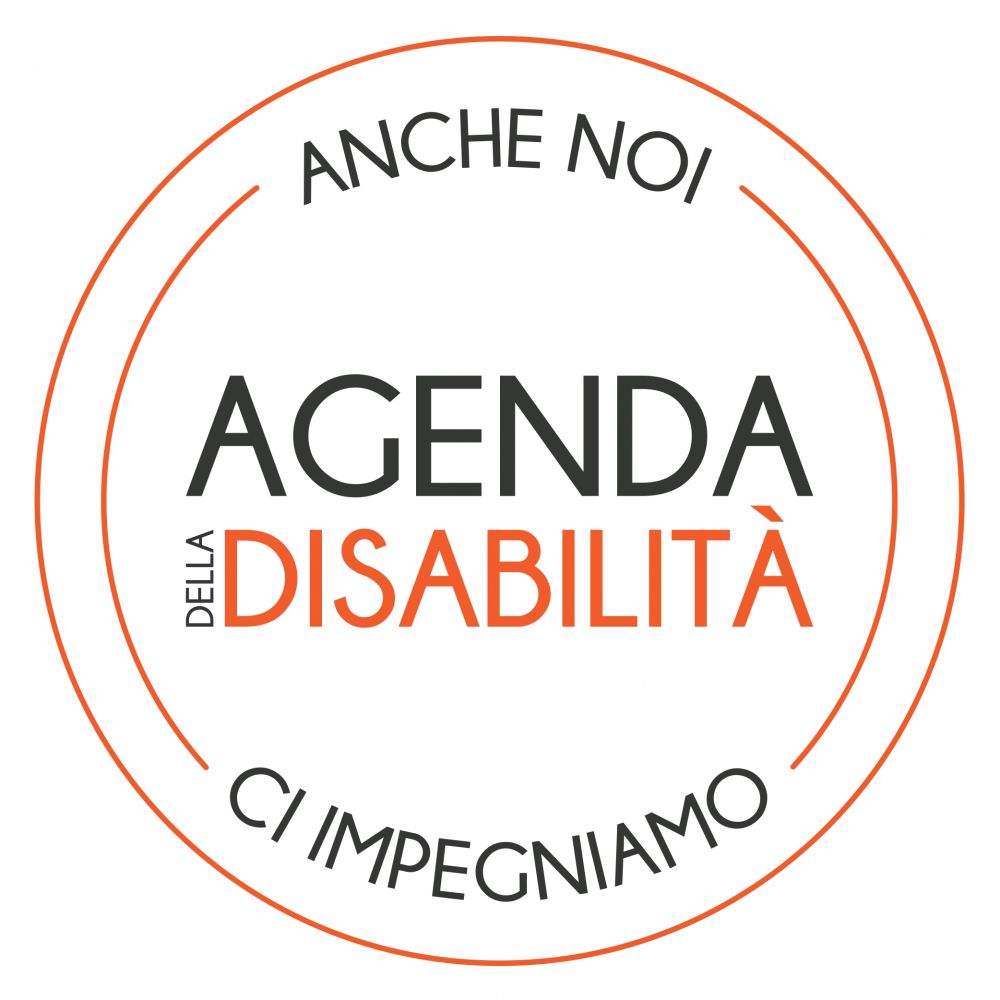
Fondazione CRT e CPD - Consulta per le Persone in Difficoltà - hanno unito le forze per costruire un modello di #inclusione per il futuro realmente partecipato.
L’Agenda individua 6 Goal e 2 ambiti trasversali, ambiti ideali in cui ricondurre idealmente le criticità, gli obiettivi e le azioni possibili.
È tempo di realizzare i progetti e le azioni che nell’Agenda sono state raccolte in modo partecipato e condiviso. Un’opportunità aperta a tutti, un percorso comune per migliorare le nostre comunità in modo inclusivo innovativo e sostenibile.
Uisp Torino ha aderito all' Agenda
Aderire all’Agenda significa innanzitutto esprimere il proprio impegno civile a favore della comunità in cui si vive, si lavora, si partecipa, per tentare, mettendoci del proprio, di migliorarla per sé e per gli altri.

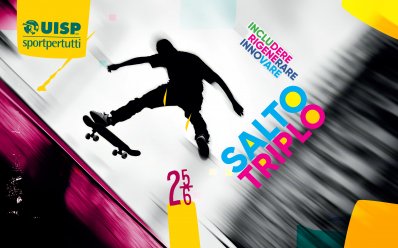
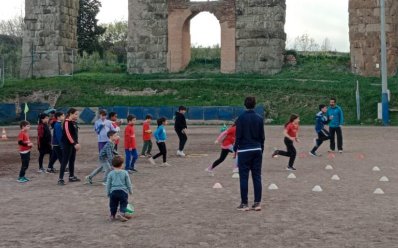
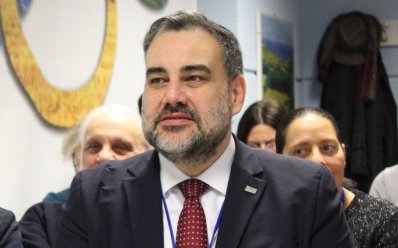
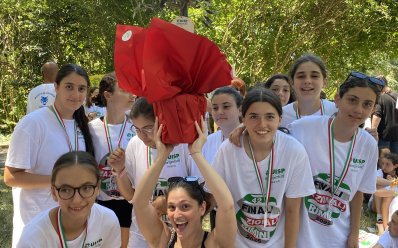
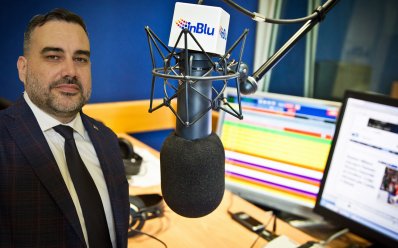
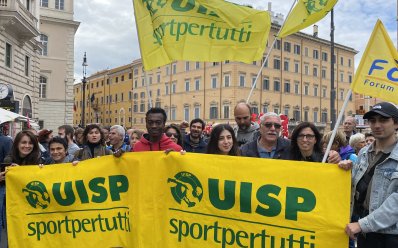
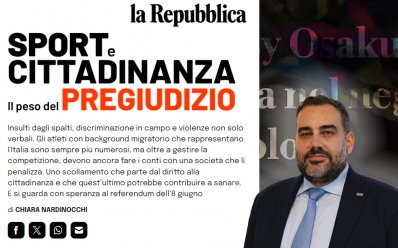



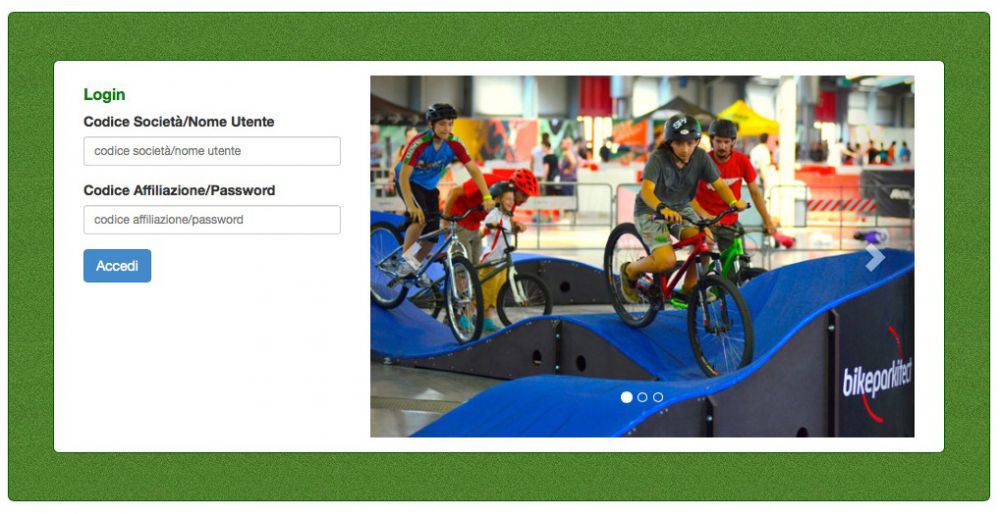

_1.jpg)